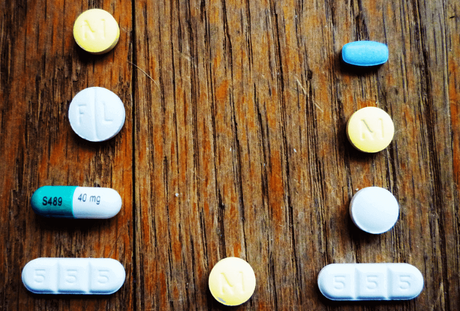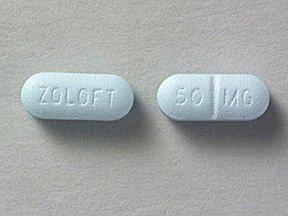When we want to talk about lexapro withdrawal symptoms, we must begin with the drug itself. What is Lexapro?
Just like valium or diazepam, lexapro has also been popular in the US. This drug is also known as Escitalopram, this drug also works as an SRRI or selective serotonin reuptake inhibitor. To treat depression, lexapro is also safe for patients as young as the age of 12.
Besides valium or diazepam, lexapro is also used to treat GAD (general / generalised anxiety disorder). Another drug that is also similar to lexapro is called “Celexa”, especially with the fact that it also contains the (S) – stereoisomer.
There has also been a debate between the use of lexapro to celexa. In some cases, Lexapro is not only effective for treating GAD, but also OCD (obsessive compulsive disorder).
What happens when people stop taking it? What are the lexapro withdrawal syndromes like?
Factors Regarding The Lexapro Withdrawal Symptoms
 Lexapro Withdrawal Symptoms – Factors Regarding
Lexapro Withdrawal Symptoms – Factors Regarding
Before we start listing down about lexapro withdrawal symptoms, let’s focus on the factors first. These four (4) elements affect the reactions to quitting taking the drug:
1. The Time Span
Just like with other drugs such as valium, the time span to take lexapro also matters. The longer you take it, the longer it stays in your system and the harder it is to quit.
2. The Dosage of The Lexapro (10 mg or 20 mg?)
The amount of dosage per intake also affects your withdrawal process. Logically, those who consume lower dosage find it easier to quit than those who have it higher.
3. The Cold Turkey and The Tapering
Going “cold turkey” (cutting it out all at once) may cause a chemical disruption in your brain. Going slow (tapering) is necessary, especially if you have consumed it at higher dosage.
4. The Patient’s Physiology
Not only age, your physical fitness affects your reaction to lexapro withdrawal symptoms.The older you get, the slower your metabolism usually is.
So, what are they like?
Lexapro Withdrawal Symptoms List
 Lexapro Withdrawal Symptoms list duration
Lexapro Withdrawal Symptoms list duration
This may sound unpleasant, but be ready when it is time to quit taking Lexapro. Some of the most common lexapro withdrawal symptoms include:
- Anxiety
- Changes or loss of appetite. (Some can go hungrier than before while others do not feel like eating at all)
- Brain zaps, where you feel some sort of electrical currents in your brain
- Concentration problem
- Depersonalisation, when you feel like you are not your usual self
- Depression
- Feeling dizzy
- Vision problems, For example: some people see something floats before their eyes
- Fatique
- A headache
- Sleep disorder
- Irritability
- Changes in sexual drive, whether it is a high or a low libido
- Mood swings
- Nausea
- Suicidal thoughts
- Excessive sweating
- Weight changes, whether you gain or lose some
The list may look scary, so this is why consulting your doctor first is important before deciding to quit taking Lexapro.
How Long Do Lexapro Withdrawal Symptoms Last?
After listing down all lexapro withdrawal symptoms, here comes the next question:
How long do theylast? As mentioned earlier, the four (4) top factors play a bigger role in the timeline of them. Gradual tapering will not hurt as much as going “cold turkey”. Besides consulting your doctor, you also need to keep track on which way may work better.
Generally, lexapro withdrawal symptoms may last between a few weeks to several months. Once again, this has something to do with the dosage taken. For example: if you use it for a year, the helpful checkpoint would be 90 days or around three months.
If the symptoms are still there after 90 days, alert your doctor immediately for more professional solution. Then again, this may work differently on other patients. Keeping track of the symptoms and how long they still last really helps.
Another issue when dealing with lexapro withdrawal symptoms is when you are married and have a baby. For example: what if your firstborn has a suspicious swelling in his or her head? Your very first reaction might be freak out at it.
Before letting your anxiety get the best of you, do not forget to take a deep breath. After that, do your own research first before going to the doctor. There is a common condition called caput succedaneum. This can sometimes happen to infants.
However, you should not worry too much. This condition usually disappears after a few days. Once you consult your child’s pediatrician and they say it is okay, then you can relax again.
Other Drugs Besides Lexapro: Zoloft and Repatha
 Other Drugs Besides Lexapro Zoloft and Repatha
Other Drugs Besides Lexapro Zoloft and Repatha
Valium and Lexapro have been the popular choices to treat depressions, especially GAD (general / generalised anxiety disorder). However, it turns out that they are not the only drugs safe enough to treat patients as young as 12 years old.
Zoloft is also another SRRI or selective serotonin reuptake inhibitor kind of drug. This antidepressant is actually a brand for its real name, ‘sertraline’ or sertraline hydrochloride. Zoloft is also safe for both adults and children (as long as the children are 12 years old at least.)
Zoloft is also used to treat different types of anxieties and other mental illnesses, like:
- GAD (general / generalised anxiety disorder).
- Panic disorder.
- OCD (obsessive compulsive disorder).
- Social anxiety.
- PTSD or Post-Traumatic Stress Disorder. (Nowadays, it has been changed into PTSS or Post-Traumatic Stress Syndrome, because it is considered as an injury more than a mental health problem.)
- PMDD or Premenstrual Dysphoric Disorder.
What happens when you decide to stop taking zoloft? How critical are the zoloft withdrawal symptoms?From the very long list below, you can see that some of the symptoms are almost similar to patients when they stop taking lexapro, like:
- Anxiety
- Feeling easily irritated
- Agitation
- Feeling light-headed
- Pain in muscles
- Nausea
- Trembling
- Exhaustion
- A headaches
- Dizziness
- Sleeping disorder called insomnia
- Throwing up
- Very high fever
- Seizures
- Stomach problems
- Depersonalisation, which often results in nightmares and hallucinations
- Electrical jolts in the brain
- Depression
- Rapid changes in appetite and weight. (Both can either go up or down, depending on each patient’s condition)
The lists up there may scare you, but here are some things that you can do to deal with them:
- A proper diet
- A regular workout
- Reducing the dosage slowly or tapering instead of going “cold turkey”
If the symptoms still persist, notify your doctor for further medical help.
Then what about repatha? For those with high cholesterol problems, repatha is the drug.
Repatha is a brand for an evolocumab medicine which has been popular in the US. Along with low-fat diet and other proper medications for cholesterol treatments, some people assume that repatha is also good for heart problems.
However, not many are really sure if repatha can also cure anything other than cholesterol problems. It has not been discovered whether it can also reduce the possibility of heart attack and stroke. Those two health problems are also related to high cholesterol levels.
Since high cholesterol level can stress some people out, repatha is needed. Still, what if it has side effects? How bad would they be?
Quote: A high cholesterol level also means hormonal imbalances inside, some patients may suffer depression. This may lead to another problem: some cholesterol drugs may chemically clash with other drugs for mental illnesses. That way, the patients might feel even worse instead of better.
In some cases, there are repatha side effects that might badly influence your daily life. For starters, patients younger than the age of 13 are not allowed to take this. There are also other conditions that do not allow you to take repatha, which are:
- People with kidney problems or liver disease.
- People who are latex-allergic.
- Women who are pregnant or on a pregnancy program (trying to have a baby).
- Mothers breastfeeding their babies.
Some of the repatha side effects besides pain and wounds at the injected spot include:
- Backache
- Muscle pain
- Flu
- Losing your voice
- Cold-like symptoms
- A headache
- Cough
- Ear congestion
Earlier, it is mentioned that people specific conditions had better not take repatha. It will be discussed in the next chapter.
Repatha Side Effects for People with Specific Conditions
Based on the list of people with specific conditions, here are the side effects of repatha that you need to be aware of:
1. For Pregnant Women
Although there are not any researches that show the specific results, the second and third trimesters are the most critical moments for all pregnant women. This means, be careful what you consume. Yes, that includes the medications too.
2. For Lactating or Breastfeeding Mom
This is the same thing with the first one. Although there is not any proof yet, you had better stay on the safe side. Whatever the mother consumes always goes to the baby too during breastmilk. Repatha may affect the infant worse.
3. For Elderly People Above 65 Years Old
The older one gets, the more sensitive and frail they usually become. This is why repatha is not suggested for patients who are too old.
4. Other Impairments (Renal And Hepatic)
If you have a renal impairment, then your dosage does not need to be adjusted. It is also the same thing with hepatic impairment.
Lexapro or Zoloft?
 Lexapro Withdrawal Symptoms – Lexapro or Zoloft
Lexapro Withdrawal Symptoms – Lexapro or Zoloft
After reading more about lexapro and zoloft, here comes the next question: which one is better?
Once again, it depends on your condition and doctor’s suggestion. In short, here is the comparison:
LEXAPRO (escitalopram) ZOLOFT (sertraline)
– Prescription only
– Helps you to relax and improve your moods
– Does not make you feel too sleepy
– Can cause weight gain (even just as little as 2 – 4 kg)
– Better not take this if you have liver disease
– Only for depression, anxiety, and panic disorder
– Prescription only (but there is a generic version too)– Helps you to relax and improve your moods
– Effective to reduce depression
– Safe for pregnant women
– More than likely to cause diarrhea
– For depression, anxiety, panic disorder, OCD, PTSD/PTSS, PMDD, and eating disorder like bulimia nervousa
Make sure that the drug that you choose is the right one for you.
How To Track Your Anxiety Attacks
Besides consulting your doctor and taking the right medication, you need to independently keep track of your anxiety attacks. This can help you to find the triggers and anticipate the next episode.
Quote: Keeping a health diary is not only about jotting down your diet program and drugs to take. Eventhough this feels like a task, writing and describing your anxiety attacks can also distract you from feeling overwhelmed.Your diary does not have to be like any regular diaries, where you write each page completely. Depending on how you feel at that moment, you can either write or draw to describe the episode. Let your doctor help you from there.
On a regular therapy session, you can also bring your health diary if you feel like it. Discussing it with your doctor will give you both more ideas on what to do next.
Other things to do to combat the episodes:
- Breathe deeply
- Meditate
- Listen to soothing, calming music
- Use the right aromatherapy candles in your bedroom
- Work out regularly
- Catch up on some light reading
- Pray
Conclusion
There are plenty of medications to treat depression and other types of anxiety. Some of them are valium, lexapro, and zoloft. In some cases, stress caused by high cholesterol issues needs another one called repatha.
Of course, you also need to be aware of lexapro withdrawal symptoms and also zoloft withdrawal symptoms. Another thing you also need to watch out when taking repatha is having repatha side effects.
Other things that you should do to deal with lexapro withdrawal symptoms and the rest include finding the right support from people. Not everyone in the world can and will understand your condition, so you had better choose wisely.
